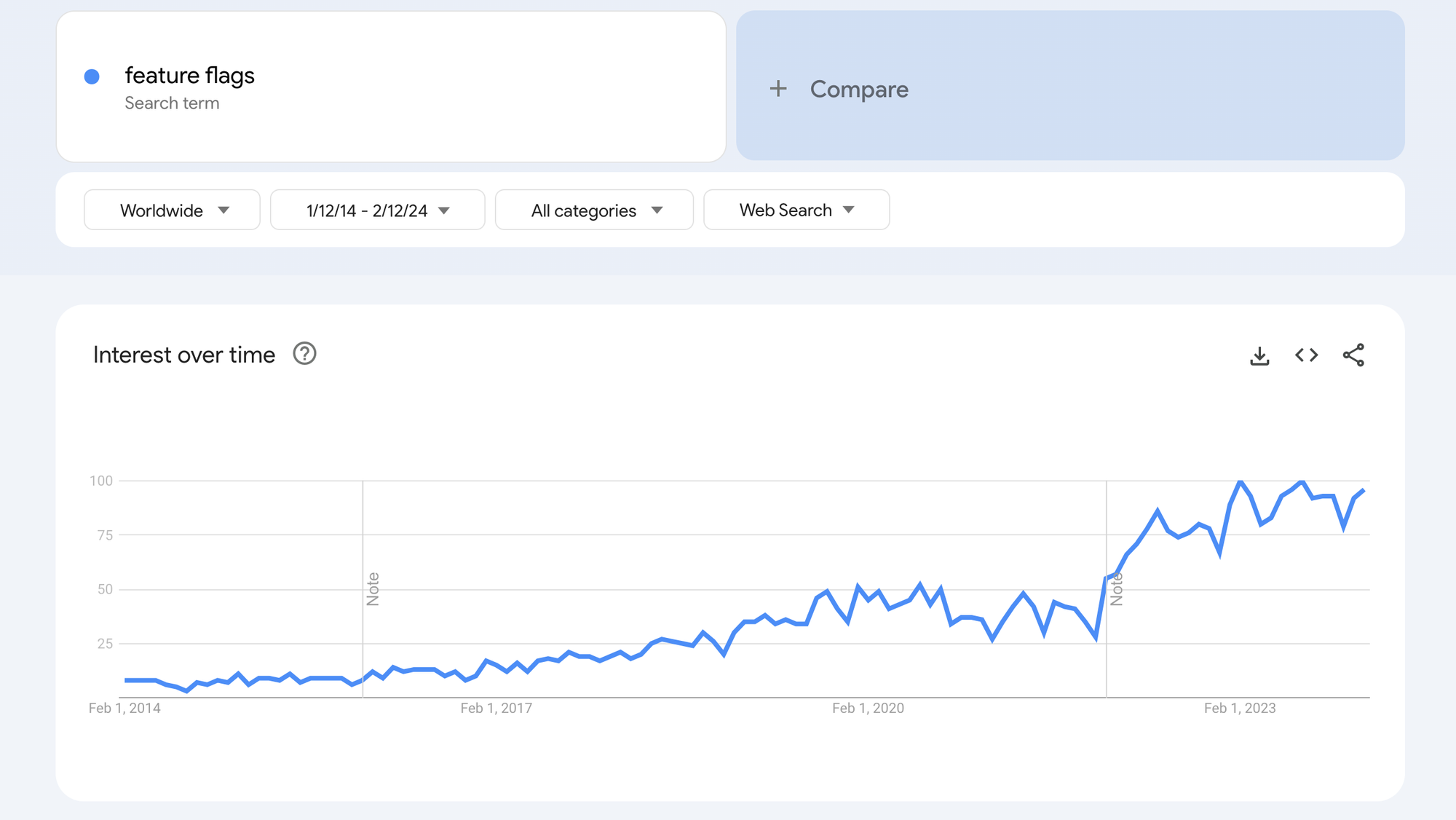Unlocking the Power of Feature Flags with OpenFeature

Have you noticed the buzz around feature flags lately? It's not just you—they've truly exploded in popularity. In just the past five years, the average search traffic for feature flags on Google has tripled!

With this surge in popularity, the ecosystem for feature flags has expanded massively. Dozens of SaaS platforms dedicated to feature flags have popped up, and there are now over 2000 open-source repositories on GitHub that reference feature flags in some way.
Saying that its an exciting time for developers who've been early adopters of feature flags is an understatement, but there's been a catch: vendor lock-in. It's been a bit of a dark cloud over the otherwise sunny rise of feature flags.

Enter OpenFeature—a knight in shining armour for feature flag damsels-in-distress. OpenFeature is an open standard for feature flags (supported by the Cloud Native Computing Foundation) which offers a vendor-agnostic feature flagging API to combat vendor lock-in. This means that with OpenFeature no matter which feature flag management platform (i.e vendor) you're using, you can implement feature flags in a standardized way.
Now, for those who already have feature flags up and running in their projects, you might be wondering, "What about us?" Well, there's great news! OpenFeature allows existing vendors to create Providers, which means they can translate their proprietary feature flag implementations into this new standard. Thanks to these providers, adopting OpenFeature has never been easier.
Want to see what this looks like in practice? Check out the sister post exploring the conversion of vendor specific feature flags to the OpenFeature standard:
